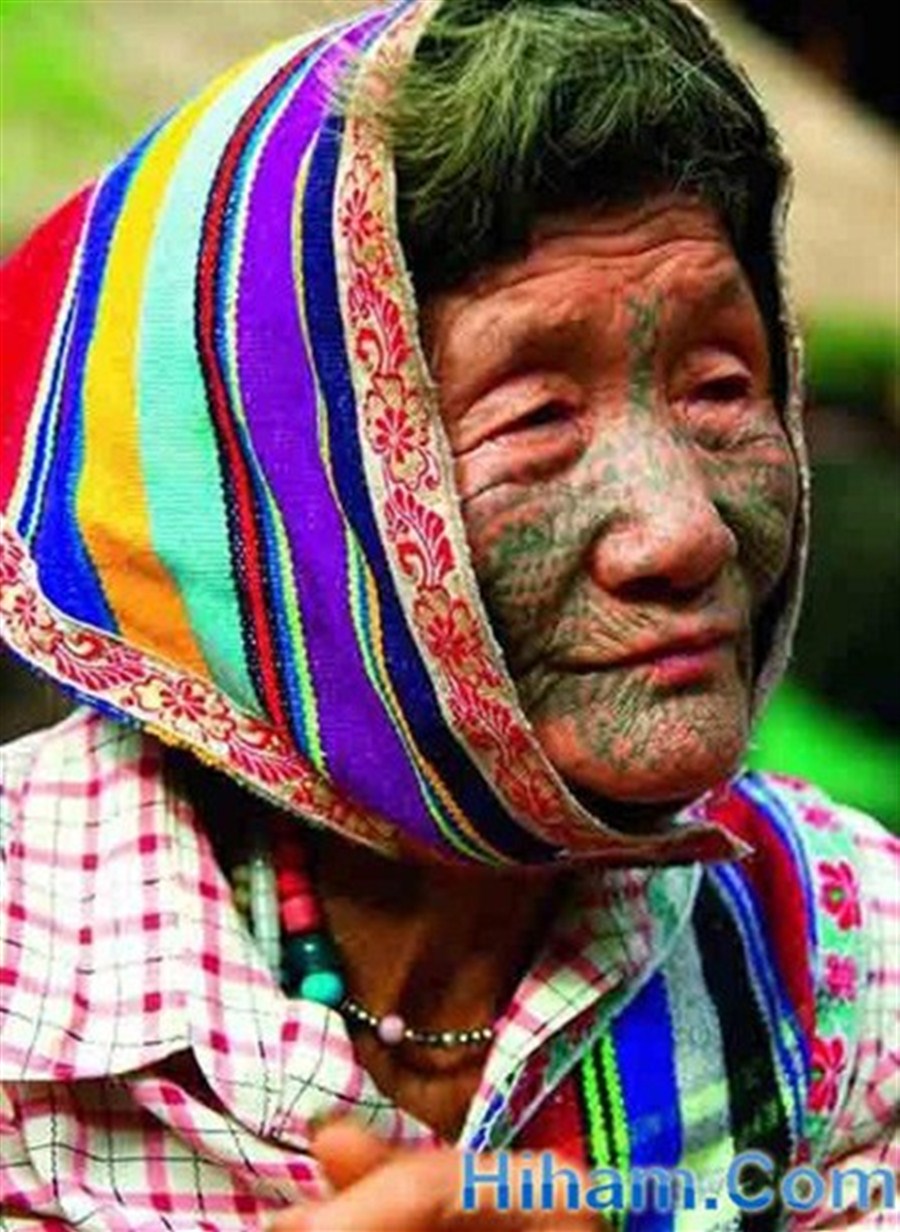Tracking health of tattooed women
 0 Comment(s)
0 Comment(s) Print
Print E-mail Shanghai Daily, October 22, 2014
E-mail Shanghai Daily, October 22, 2014
Authorities are tracking the health records of the last group of women whose faces were tattooed in a tribal tradition in southwestern China, as they seek to preserve the vanishing ethnic culture.
 |
|
Women of the Dulong Ethnic group with facial tattoos. |
The painful tradition of tattooing simple patterns across the nose, mouth and cheeks of women in the Dulong ethnic minority existed for hundreds of years, believed to have started in the Ming Dynasty.
But after the founding of New China, the tradition began to taper off and the number of Dulong women carrying remnants of the tradition in Yunnan province is dwindling.
In 2007, the number of woman with facial tattoos was 130. Now there remains just 26.
"We have created records for the 26 women, while doctors will check their health each month," said Zhou Lixin, a police officer of the Dulongjiang Village in Nujiang Prefecture, Yunnan.
Doctors will measure vital signs such as weight and blood pressure, bring medication to the women and take them to hospital if necessary.
The youngest of the 26 is 54, while the oldest is in her 90s.
"They are the last face-tattooed women," he said. "Their stories will become history, but we want them to live longer and healthier."
One of China's 56 ethnic groups, the Dulong ethnic minority has a total population of around 7,000 living in the Dulongjiang Village in southwest Yunnan province.
The custom is thought to have started about 360 years ago. The Dulong were often attacked by other ethnic groups and women taken as slaves. To avoid being raped, Dulong women had their faces tattooed to make themselves less attractive.
With the women scattered across remote mountains, it sometimes takes the doctors five or six hours to reach them.
But Zhou says most are in good health. Many, laden with heavy baskets on the backs, still cut grass to feed pigs. "Some suffer from rheumatism and arthritis, and a few have high blood pressure," Zhou said.






Go to Forum >>0 Comment(s)